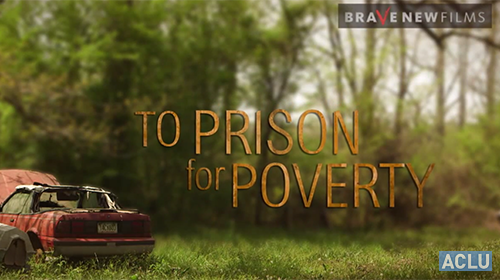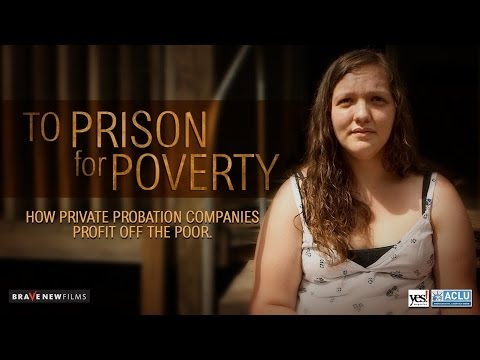
Welcome to Alabama, the state of the never-ending seat belt ticket.
Hali Wood is 17. She's applied to work at several grocery stores in her home town of Columbiana, but none are hiring. A few months back, cops ticketed Hali for not wearing a seat belt. The fine: $41. Hali has paid $41 and then some, but she's still hundreds of dollars in debt. Why? Because the court contracts with JCS, a for-profit probation company that forces Hali to choose between paying their exorbitant fees and going to jail.
Here's how the scheme works:


%3Ciframe%20allowfullscreen%3D%22%22%20src%3D%22%2F%2Fwww.youtube.com%2Fembed%2FC_cIWv9yc3A%3Flist%3DPLQ9B-p5Q-YOOnGFZADPMhvYds1DJE29Dh%26amp%3Bautoplay%3D1%26autoplay%3D1%26version%3D3%22%20frameborder%3D%220%22%20height%3D%22281%22%20width%3D%22500%22%3E%3C%2Fiframe%3E
Privacy statement. This embed will serve content from youtube.com.
Borrowing from the payday lender playbook, companies like JCS often sign contracts in cities and counties strapped for cash. For the county, the deal seems like a sweet one: The company will collect outstanding court debts for free and make all their profits from charging probationers fees. But the problem is that many of these people were put on probation because they were too poor to pay their fine in the first place and for them, the additional fees are huge. People find themselves scrambling for money they don't have and forgoing basic necessities to avoid being thrown behind bars for missing a payment. The impact on communities, especially low-income communities of color, is devastating.
Sadly, the for-profit probation business is booming. Every year, hundreds of thousands of people are sentenced to probation, often for misdemeanors including unpaid parking tickets. Instead of being able to just pay those fines and move on with their lives, many get sucked into spiraling debt traps they cannot escape. There are hundreds of thousands of people like Hali out there, for whom small court fines have ballooned into hundreds of dollars of debt.
The for-profit probation racket isn't benefiting society; it's only benefiting these companies' bottom line. We need to remember two things: 1) If probationers miss a payment and end up behind bars, taxpayers foot the bill for this imprisonment; and 2) Our communities are not better off when we force people in poverty to choose between their liberty and putting food on their table —and needlessly lining the pockets of for-profit probation companies in the process.
Counties and courts do not need to contract with these debt collectors on steroids. Publicly run probation exists, and it works while doing much less damage to communities. It's time to urge courts to cut their ties with the for-profit probation industry.
Check out the rest of our new video series, To Prison for Poverty, which was produced in partnership with Brave New Films. The series takes a close look at two for-profit probation companies in Alabama and Georgia making bank off those least able to pay.
Learn more about the rise of modern-day debtors' prisons here.
Learn more about private prisons and other civil liberty issues: Sign up for breaking news alerts, follow us on Twitter, and like us on Facebook.

